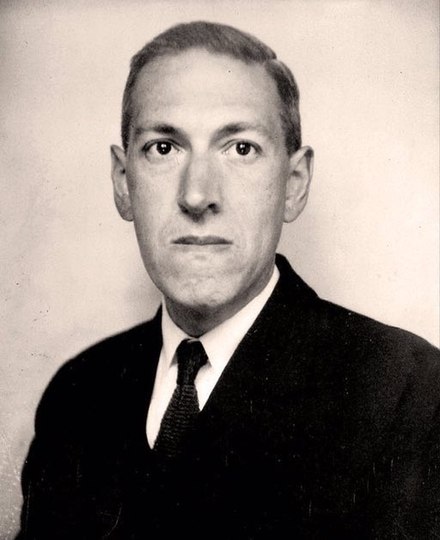There’s a big secret in the publishing industry: Those bestsellers you see on Amazon and Barnes & Noble? Most of them were written by hired hands, by ghostwriters, who catapulted their clients to success.
I would know. At Alembic Partners, I’ve ghostwritten high-end books for CEOs, venture capitalists, founders, and government leaders. We carry out our work under non-disclosure, like most ghostwriters.
But we can occasionally reveal secrets of the craft—how hiring a ghostwriter can build your brand and platform as a thought leader.
Think about it this way: collaborating with a high-end ghostwriter is like hiring your own Michelin Star chef. Unless you’re already an experienced cook, you’ll have a hard time finding the freshest ingredients, crafting a menu, navigating the kitchen, pairing your meal with a great wine, and impressing the critics.
As your ghostwriter, my job is to learn your tastes more than anyone else and then craft your personal menu for the world—which, in this case, is your book, your masterpiece.
Half the work happens before a word has been written on the page. Planning is almost everything. Here are three ways to succeed.

Ghostwriting task 1: You must define your genre before you get started. And it’s harder than you think.
Aspiring authors often find themselves in this predicament: “I have plenty of material. But I can’t define my book. I want it to be a little of everything for everyone: A little memoir, a little self-help, some business writing, a pinch of narrative nonfiction.”
But that won’t fly in the publishing world. Your genre—the category that determines your audience, sales potential, and whether your book will sit at the front or back of Barnes & Noble—is your starting point.
A book without a well-defined genre is a vanity project. Imagine you’re sitting around a campfire eager to hear a good story, and the storyteller instead rattles off every detail about themselves for the next hour, just because they think they’re awesome. Would you want to stick around?
When a client struggles to choose their genre, it’s often a symptom of a deeper struggle: They don’t know themselves or what they want.
This is more common than you’d think.
Writing a book is a monumental act of self-excavation, of diving into yourself and sorting out what you really want to say.
Your decision of one, clear genre will make the whole project far easier for you, because it will demarcate the boundaries of what you can tell your readers in 200 pages. No genre, no book.
Are you a Finance Leader? Read my article on “Transforming Finance Leaders into Thought Leaders“.

Ghostwriting task 2: Explain who you are in a minute or less
Humans are complicated creatures who wear many masks and have multiple inner identities. A good ghostwriter will sift through the fragmented, unexamined thoughts of the author and weave it into a coherent storyline.
To get started, I ask clients to tell me, in a minute or less, how they see themselves.
Are you the successful leader with advice for aspiring founders? The romantic who wants to keep the pages turning with mystery, intrigue, and action? The intellectual with a sharp and groundbreaking theory that will help readers find happiness?
You might have so many interests that you have every personality. But for the purposes of a book, you need to choose one identity and stick with it.
This is hard work, and my job is to help clients figure it out. If you can’t define one aspect of yourself and your story in less than a minute, your book—at 200 pages or more—will wobble and collapse on weak foundations.
Imagine a building that tries to be both Gothic and midcentury modern. Or a meal that is both a French steak au poivre and a McDonald’s cheeseburger. Your book can’t be a little of this and a little of that. Choose who you will be.
Once you’ve laid down strong, focused foundations, your ghostwriter can move to the next step: writing towards the emotional satisfaction of your reader.
Ghostwriting task 3: Give your reader emotional satisfaction
One of the greatest ghostwriters of all time was HP Lovecraft. He was the secret pen for the celebrities of his day.
 Lovecraft had a canny talent for beautiful sentences that connected with his readers. “Most of us are heathens in the innermost recesses of our hearts,” he wrote on behalf of the magician Harry Houdini for his unpublished memoir.
Lovecraft had a canny talent for beautiful sentences that connected with his readers. “Most of us are heathens in the innermost recesses of our hearts,” he wrote on behalf of the magician Harry Houdini for his unpublished memoir.
His ghostwritten books were a canvas of words, akin to looking at the subject as a beautiful painting. They were deeply satisfying to readers. Lovecraft established an emotional connection with readers on behalf of his clients.
People read books because they want to be taken away. They want the quenching of a thirst absent from their everyday lives—an inspiration, excitement, romance, adventure. They want to be entertained, not instructed.
If your focus is education, you’re better off writing an article, not a book. For a successful book, a good ghostwriter will pull together threads of feeling, connection, pacing, drama, and tension. And these will become the core of your story.
If you found this helpful, and would like to consider working together, please feel free to contact us with a summary of your idea at [email protected]. At Alembic Partners, we ghostwrite books and thought leadership campaigns for CEOs, business leaders, founders, and investors.
